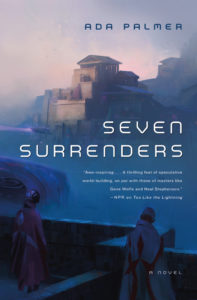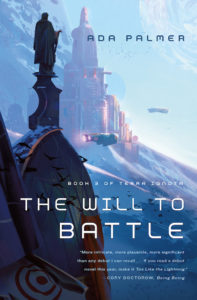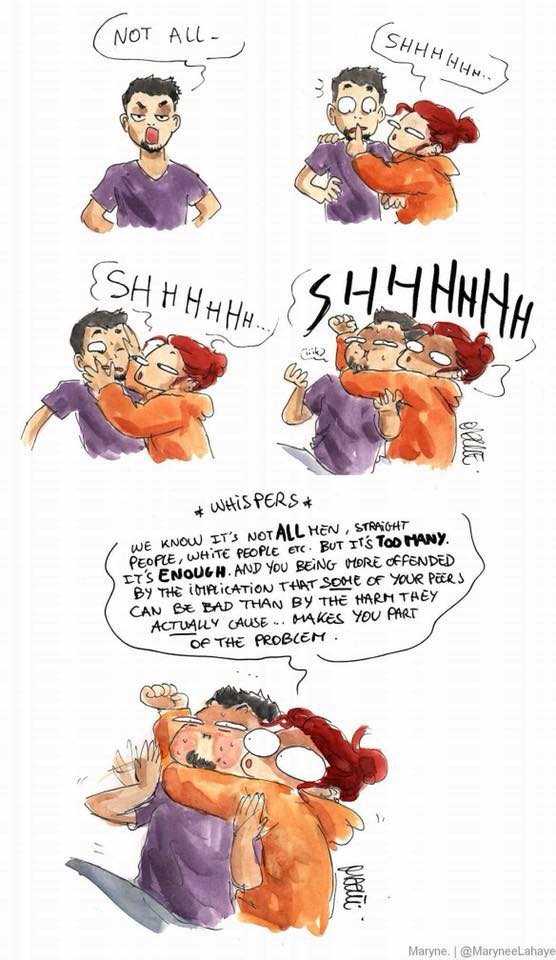 I’m coming out as a single-issue voter, and this is my coming-out post.
I’m coming out as a single-issue voter, and this is my coming-out post.
Scott Alexander recently defended the use of disproportionate action to defend settled bright-line norms. I recommend reading the whole article, it’s short and explains it very intuitively. The short version is that constant war is costly, and having a very strong taboo against certain actions means you don’t have to constantly be fighting wars and can use that energy for other things/battles. Strong taboos require disproportionate response to their violation, almost by definition.
The strongest taboos should be those defending the principles that make our society possible. There are some principles so vital to society that without them our way of life would be impossible. The Rule of Law. Prohibition of Slavery. Freedom of Speech. Freedom of Religion. Freedom of Association. Reproductive Self-Determination.
And by Reproductive Self-Determination, I mean unrestricted and unrestrictable access to both contraception and abortion, without caveat. Yes, our way of life depends on this.
I.
The past is another planet, and generally a horrible one. As I learn more about the environments our ancestors had to survive in, I find myself slightly less disgusted with their societies, and pity them more instead. Because most (if not all?) social adaptations are forced by the environment.
Starvation was a real fear for most people fairly frequently. The average pre-industrial laborer would spend half or more of their daily income just on food. “If I have another child, how will I be able to feed them?” was a legitimate fear for many. Simply having children could keep populations locked in a cycle of poverty for generations. Patriarchy is primarily about male control of the womb, and it flourished because men who didn’t take draconian measures to make sure they only gave resources to their actual genetic offspring were out-competed by those who did. This is how you turn half your population into property. All you need is Malthus and Azathoth.
Women also had incentives to perpetuate patriarchy. Medicine was rudimentary. One in ten pregnancies were lethal to the mother. Half of children born wouldn’t survive to adulthood. While pregnant one can do far less physical labor, and this is in a world where most labor productivity is already directly correlated with physical strength. Child rearing is a huge burden, and securing the full productive output of someone who can’t get pregnant is a huge boon. With the health risks and physical handicaps that come with pregnancy, and the general lack of ways to prevent or treat STIs, sex is always a risky proposition.
So we get cultures that treat women as the property of men, either their fathers or their husbands. Young women are a hot commodity. Children can be disavowed by fathers who don’t believe they are theirs, and abandoned to die. Women can be legally put to death for suspected infidelity. Sexuality is suppressed throughout society, which is drastically bad for mental health. Sex is a need for most people, as strong as the need to eat (although not inherently lethal if denied). Poor young men have it the worst, because older/established men have enough resources to be able to find a mate. In the interest of attracting a mate, or seizing enough resources to do so, young men are willing to go to extreme lengths. It’s entirely likely much civilizational advancement is due to men being willing to toil in awful and/or dangerous conditions, and take lots of risks, for the purpose of securing a mate. But it also leads to all sorts of neurosis, and often violence. The survivors of a war come home with lots of riches. To a lesser extent, so do the survivors of a raid. Or a robbery. Incel may be a new term, but only because it is now rare enough that we see it as a horrible failure, rather than the terrifying norm that surrounds us all.
II.
Industrial advancements have reduced many of these pressures. The most productive labor is now completely decoupled from physical strength. Our society is so rich that no one fears death by starvation (even if people do sometimes go hungry). Medicine has reduced child mortality to below 1%. People expect to live through pregnancy. All of these have paved the way to loosening the stranglehold that society had on sexuality.
But none of these alone is enough. Child care is now an even greater burden. In the past, children could care for themselves after the age of nine or ten, and could even contribute productively to the family by that age. Now they are massive investments of time, energy, and money, until the age of 22 (or longer). Forcing a child upon someone is akin to a light form of slavery.
Pregnancy still isn’t easy. I’m seeing the pregnancy process first-hand for the first time, and it’s fucking terrifying. Tendons and ligaments are loosened and elongated. Organs are compressed and pushed out of place. The placenta fights for control of the woman’s body like a hostile invader. Hormones are dumped into the blood which make it harder to concentrate and think, literally impairing the mother’s mental functioning! Many of the changes to the body are permanent, and all this is before we even get to delivery.
Complete control over one’s own fertility is what gives us the society we have today. It allows women to pursue whatever life they wish. It makes the investment in education worthwhile for all. It allows the entire populace to engage fully in the workforce, if they choose to. Which means that every person can now be an independent, self-sufficient, autonomous person. Not beholden to another or dependent on their good graces. Everyone has the ability to exit a relationship and know they can survive and even prosper, and no one has to stay with a rapist or child molester ever again. Men have to be actual good people worth having a relationship with, rather than simply controlling enough resources to ensure the compliance of a mate.
Furthermore, women are more free to have sex with whomever they wish (or not to!). Much of the pent-up frustration over repressed sexuality is defused. The warlords and bishops have one less thing to use to control those under them. People are happier. Society is less violent.
All of this is because the biology of reproduction is brutal, and forces society into brutal, desperate measures to fight it. A society without contraception is a slave society.
III.
Our contraception, as good as it is, is not flawless. Sometimes it fails. When it does, safe and effective abortion is the back-up that keeps us free. Only with unrestricted, on-demand abortion is there true Reproductive Self-Determination. Without that, all sex is still taking a risk. It may be far less of a risk. But those underlying forces, which pushed us into those hellish societies of the past, are still there, subtly pulling like a slow tide. There is a risk your body can be distorted without your permission, and the next two decades of your life redirected to labor you do not wish to undertake. That twists everything. It alters all of society for everyone.
I think that the anti-abortion forces know this. They want to revert us to an older, sicker society. They know that an environment of reproductive fear is one that favors their society, and erodes ours.
There are likely many people who think it’s dumb to focus so much on Reproductive Self-Determination. It’s certainly not the only principle that our society depends on. Freedom of Speech is even more important, because without it the only way to change things is with violence. Rule of Law is paramount, without it we don’t have any society at all. But neither of those is under the same level of threat that Reproductive Self-Determination is. Neither of those has several of the world’s most populace and wealthy religions working to destroy it. Neither of those has been declared an enemy by half the US government!
All the other principles I listed in the preamble are protected in the US Constitution, our most important political document. I firmly believe that if the Founding Fathers had access to the same level of safe and effective contraception and abortion that we have, they would have protected access to it in the US Constitution as well. To attack that fundamental right is to attack the very thing that makes us Americans. The love of liberty. The hatred of tyranny. The desire for a better, more peaceful, and more prosperous tomorrow.
Stripping the populace of reproductive self-determination is the first step towards totalitarianism. It’s far more important to a modern potential dictator than stripping people of their guns ever could be. Forcing us back into the environments that made such violent, patriarchal states the best answer our species had to that situation is the only thing they need to do. The rest is the inevitable grinding process of survival in a hostile world. As has been said (also by Scott Alexander I believe, but couldn’t find the direct quote) — if you take ten thousand modern, enlightened, educated Americans and drop them into the Nile delta with Bronze Age technology, they will have reverted to worshiping a god-emperor within one generation. Given those conditions, that is the social system shown to work.
So this is my bright line in the sand. I will judge every political decision I make based on how strongly it supports the rights to reproductive self-determination of the American people. Up until the point that something else becomes a bigger threat to our way of life. I get the feeling it’ll be a long time before that happens, though.
To head off any questions of why I’m focusing on my own society when there’s so many in the world that live in much worse conditions — our society is in a position to help those others as long as we are healthy and strong. We should do so as we can. But we must stay vigilant, or the forces that wish a return to the horrors of the past will sicken and destroy us, and we can’t help anyone when we’re crumbling into totalitarianism.
NARAL
Center for Reproductive Rights












 I graduated high school the year before the Columbine shooting. Columbine was a neighboring high school, only a few miles from mine. That day was a bad day for me. I kept thinking “that could have been me.” In retrospect, I don’t think it could have. I don’t think I could’ve ever brought myself to do such a thing. But I understood the urge. The despair and the rage.
I graduated high school the year before the Columbine shooting. Columbine was a neighboring high school, only a few miles from mine. That day was a bad day for me. I kept thinking “that could have been me.” In retrospect, I don’t think it could have. I don’t think I could’ve ever brought myself to do such a thing. But I understood the urge. The despair and the rage.